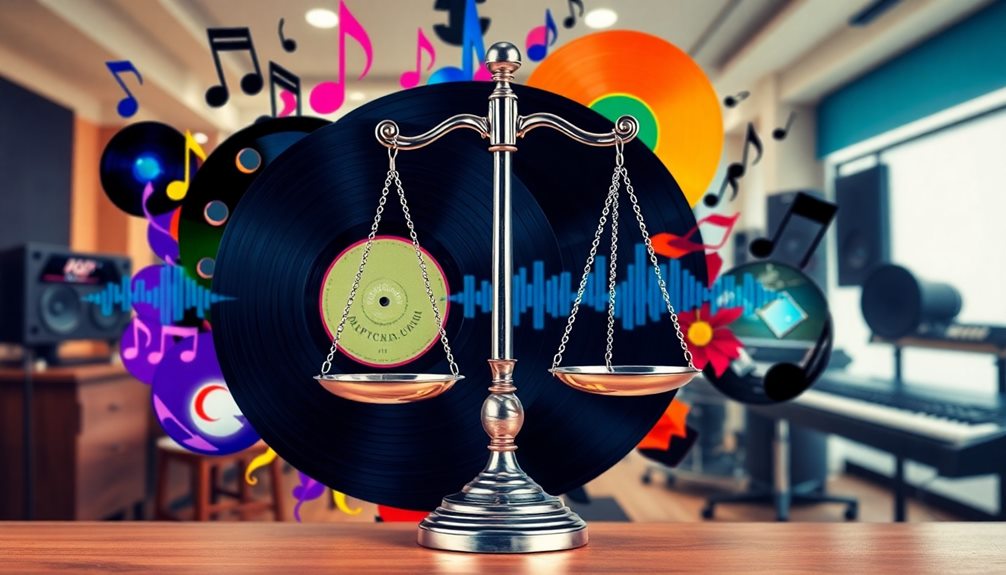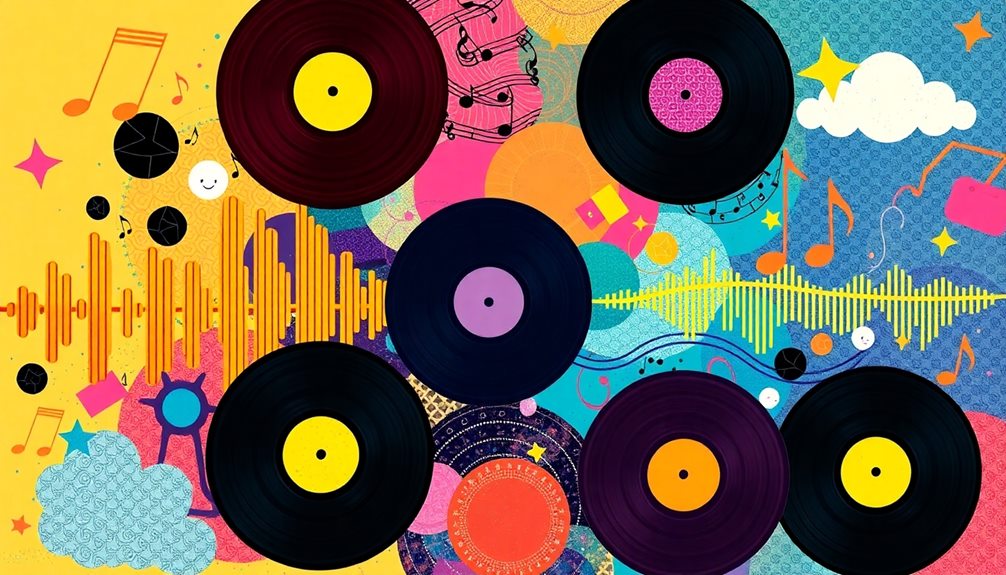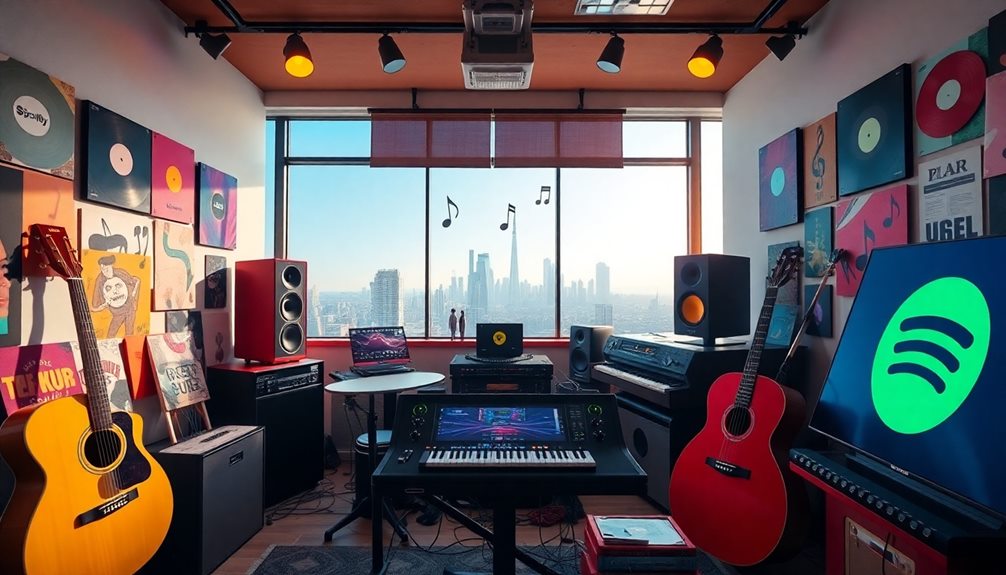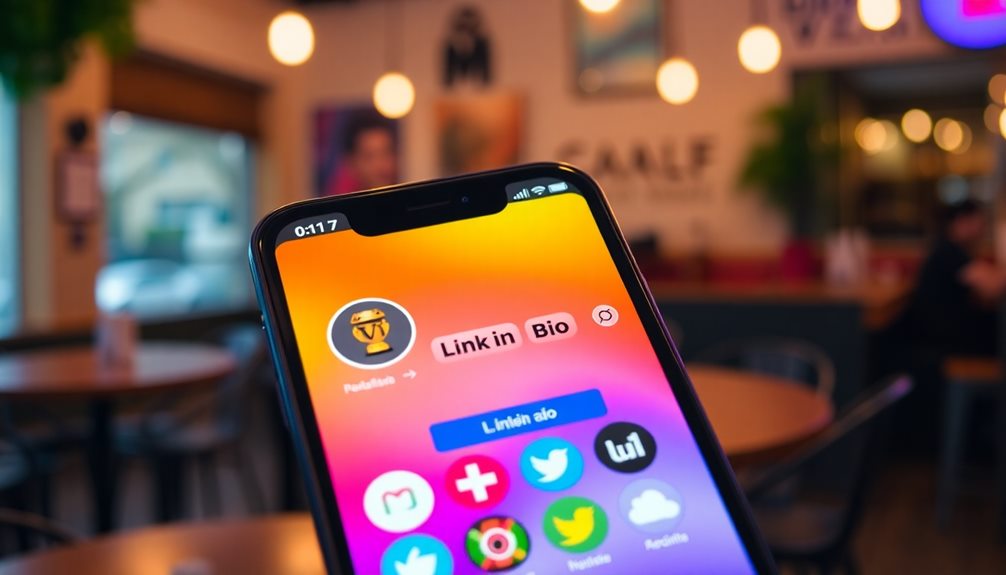When you want to sample a song, it's important to know you usually need permission from both the songwriter and the record label. There's a big misconception that you can use short clips without permission, but that's not true! There's no set amount you can sample without getting into trouble, since it often depends on how it's used and the original song's impact. It's safer to get a license to avoid any legal issues. Understanding these rules can help keep your music fun and joyful! Stick around, and you'll discover even more tips about sampling and music rights.
Key Takeaways
- There is no specific legal limit on the duration of a sample; any use typically requires permission from rights holders.
- Short samples, such as those under six seconds, are not automatically exempt from copyright protection.
- Fair use claims are complex and context-dependent, making them risky for sampling without permission.
- Obtaining a master use license and synchronization license is essential for legally using samples in commercial projects.
- Always consult legal experts to assess risks and navigate the sampling process effectively.
What Is Music Sampling?
Music sampling is an essential technique in modern music production where you reuse a portion of an existing song to create something new. It's like taking a small piece of a favorite song and making it part of your own masterpiece. You can loop, chop, or layer these snippets to craft exciting sounds.
The origins of music sampling go way back to the late 1940s. Artists like Pierre Schaeffer were experimenting with sound, and DJs like Kool Herc later brought sampling to hip-hop. It's a fun way to celebrate music you love and create fresh beats!
However, there's an important side to music sampling: copyright law. You need to get permission to use someone else's work. This means asking both the recording copyright owner and the song copyright owner for permission. Sometimes, this means getting two different licenses!
But don't worry—platforms like Tracklib make it easier. They offer a subscription model for accessing pre-cleared music. So, you can focus on creating amazing tracks without getting stuck in legal troubles.
Enjoy exploring the world of music sampling while respecting the original artists!
Legal Requirements for Sampling

When it comes to sampling songs, you must understand the legal requirements involved to avoid potential pitfalls. First, you need permission from both the sound recording copyright owner and the composition copyright owner. Yes, even if the sample is super short! Copyright law doesn't have a specific time limit that allows you to use a song without asking.
You might think about fair use, but that's tricky! Fair use is decided on a case-by-case basis and doesn't guarantee you'll be safe from trouble. To make certain you're covered, getting proper licenses is key. You'll need to obtain a master use license and a synchronization license, especially if you're planning to use samples in commercial projects.
High-profile cases, like those involving Vanilla Ice and Queen, show how serious this can get. Unauthorized sampling can lead to big problems.
It's always a good idea to seek legal advice before you start sampling. Sample clearance is essential to keep your music journey joyful and free from legal woes. So remember, stay informed and get those permissions!
Understanding Music Rights
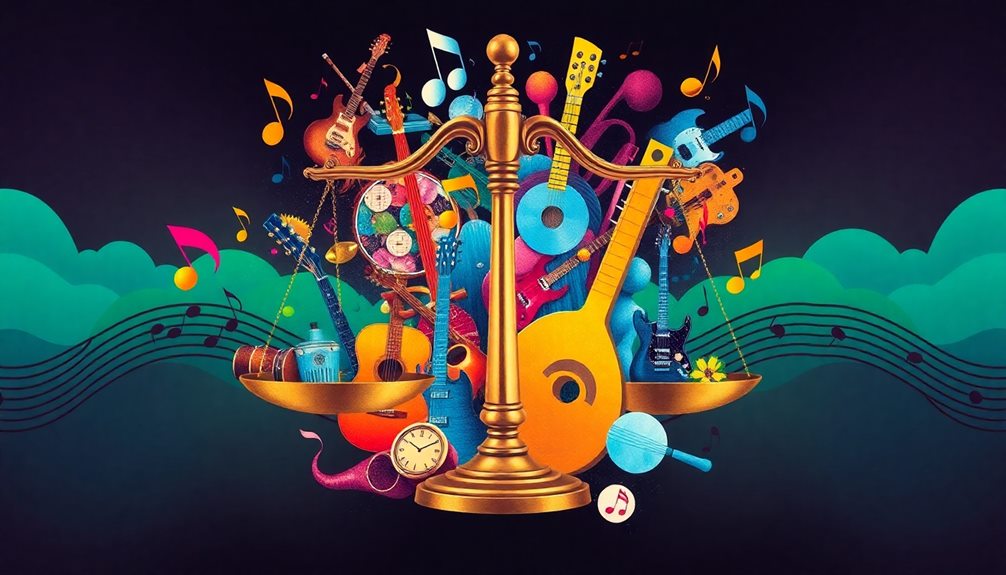
Understanding the landscape of music rights is essential for anyone involved in creating or using music, as it directly impacts your ability to sample legally. When you think about sampling, remember that you need permission to sample from two different copyright owners. One owns the composition, which includes the melody and lyrics. The other owns the sound recording, which is the actual performance you hear.
Recent advancements in machine learning tools have made it easier for artists to analyze and navigate these rights effectively.
A common myth is that if you sample something short, like under six seconds, you won't get in trouble. That's not true! Any recognizable part can lead to copyright infringement, no matter how short it is.
Many people also believe that sampling without permission is okay if it's for non-commercial use, but that's a misunderstanding. Copyright laws require clearance for any public distribution, so always check before you use someone else's work.
Fair use might sound like an easy way out, but it's complicated. Courts look at several factors, including how you use the sample and its impact on the original song.
Obtaining Permission for Sampling
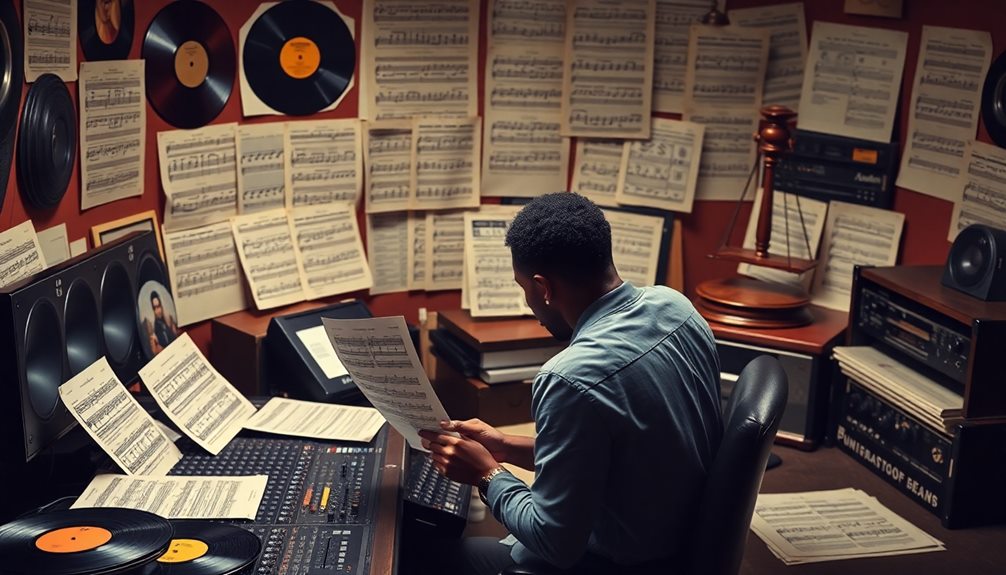
When you want to sample a song, you'll need to get permission from two important people: the owner of the recording and the owner of the song.
Finding these rights holders can be easier with cool tools like Shazam or help from organizations like BMI and ASCAP.
Once you locate them, clear and friendly communication about how you'll use the sample is key to getting the green light!
Types of Permissions Required
To legally sample a song, you'll need to secure two types of permissions: one from the recording copyright owner and another from the composition copyright owner. This means you have to get two separate licenses!
The composition rights cover the melody, lyrics, and arrangement of the song, while the sound recording rights focus on the actual recorded performance.
It's really important to understand these differences. When you're ready to ask for permission, be sure to communicate clearly about how you'll use the sample. The owners might want to hear what you plan to create, so sharing your vision can help build trust.
If you're working with indie labels, you may find they're more flexible and might charge little or nothing for sample usage.
But, if you're dealing with major labels, be prepared for costs that can range from hundreds to thousands of dollars, plus possible royalties.
Organizations like BMI, ASCAP, and SESAC can help you find the rights holders and navigate the permission process.
Identifying Rights Holders
Securing the necessary permissions for sampling requires knowing who owns the rights to the song you want to use. Identifying rights holders is the first step in this exciting process! You'll need permission from both the sound recording copyright owner, usually the record label, and the composition copyright holder, often the songwriter or music publisher.
You can find this information using databases from performance rights organizations (PROs) like ASCAP, BMI, and SESAC. These resources can help you discover who created the music and owns the rights. Technology can also assist! Apps like Shazam are fantastic for identifying songs and their artists.
Here's a simple table to help clarify the types of rights holders you might encounter:
| Type of Rights Holder | Common Examples | How to Identify |
|---|---|---|
| Sound Recording Copyright | Record Labels | PRO databases, music credits |
| Composition Copyright | Songwriters, Publishers | PRO databases, music credits |
| Performance Rights | ASCAP, BMI, SESAC | PRO websites and databases |
| Mechanical Rights | Music Publishers | PRO databases, song metadata |
Communication With Owners
Understanding how to communicate effectively with rights holders is crucial for obtaining permission to sample a song. When you reach out to the original artists or their representatives, be clear about your intentions. Explain how you plan to use the sample and where it will fit in your new work. This helps them understand your vision and can make them more likely to grant you permission.
To find the right people to talk to, use performance rights organizations like BMI, ASCAP, and SESAC. They can help you identify the sound recording copyright owner and the composition copyright owner, which are usually the record label and the music publisher. Remember, communication is key!
The process of negotiating for permission can vary. Some indie labels mightn't charge much, while major publishers could be more expensive. So, be prepared for different outcomes!
It's essential to document everything and keep clear records of all agreements. This way, you guarantee that you're legally compliant and ready for any future discussions. By approaching rights holders with respect and clarity, you'll pave the way for a smoother sampling experience.
Costs of Sample Clearance
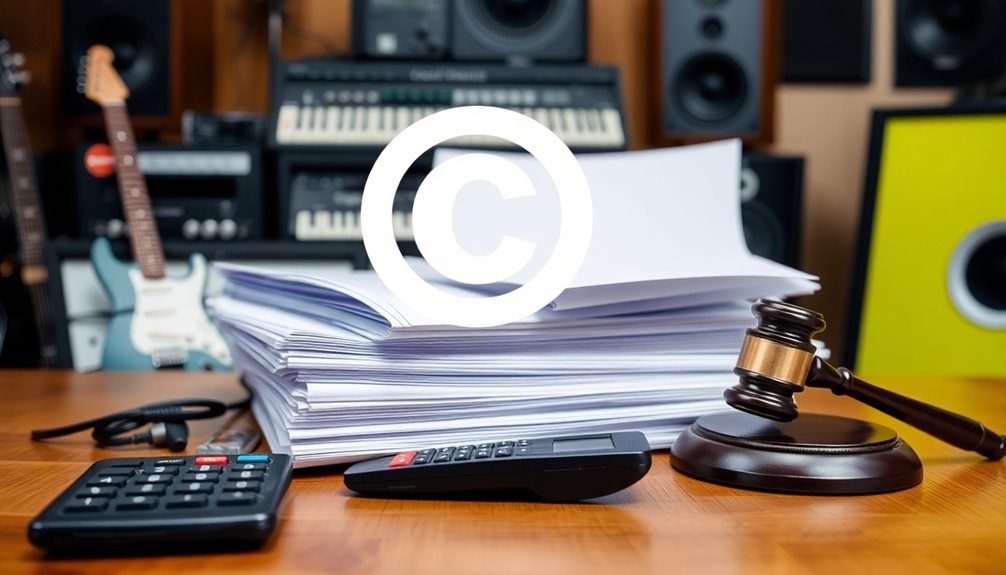
Steering through the costs of sample clearance can be a challenging task for many artists, especially when you consider the wide range of fees involved.
It's important to know what you're getting into. The clearance process can vary greatly depending on the sample's popularity and the rights holders' demands.
Here are some key points to keep in mind:
- Costs can range from a few hundred to several thousand dollars.
- Indie labels may charge little or nothing, while major labels often ask for upfront payments and royalties.
- Rollover fees based on sales can add to your financial burden.
- Advance fees for publishers could cost anywhere from $250 to over $5,000!
When you're looking to get a license to use a sample, these costs can really add up.
This is especially true for independent artists, where the terms set by rights holders can be tough to manage.
Planning ahead is vital! Understanding the costs of sample clearance helps you budget better and keep your creative projects on track.
Keep your eyes on the prize, and don't let costs hold you back!
Risks of Unauthorized Sampling

Sampling without permission can bring serious risks that may outweigh any creative benefits. When you sample music without permission, you could face copyright infringement allegations. This can lead to lawsuits, which might cost you a lot of money and even take away your rights to distribute your music!
If you're an independent artist, getting clearances for samples can be tough. The more popular the sampled song becomes, the greater the risks of unauthorized sampling. If you sell over 1,000 copies, you might catch the attention of rights holders, increasing the chance of legal trouble.
You might think altering a sample protects you, but that's not always true. If the original work's essence is still recognizable, you could still face issues.
While the fair use rule might offer some protection, it's risky. It all depends on factors like how you use the sample and its impact on the original creator's earnings.
Frequently Asked Questions
How Much of a Song Can You Sample Without Copyright?
When you're considering sampling a song, remember there's no specific legal length that guarantees permission. Even brief snippets can lead to copyright issues, so always seek clearance to avoid potential legal trouble.
Can You Use 15 Seconds of a Song Without Copyright?
You can't just use 15 seconds of a song without permission. Copyright law protects all samples, regardless of length. It's safer to seek clearance to avoid infringement claims and potential legal trouble down the road.
How Much of a Song Can You Use Without Getting Sued?
You might think you can use a snippet without consequences, but that's risky. Even tiny samples may lead to lawsuits. Always get permission to protect yourself from legal trouble and financial fallout.
Can You Sample an Entire Song?
You can't legally sample an entire song without permission. Doing so risks copyright infringement, leading to lawsuits and penalties. Always seek clearance from both the sound recording and composition copyright owners to avoid these issues.
Conclusion
Sampling music can be super fun, just like dancing to your favorite tunes! But remember, it's important to play by the rules. Always check if you need permission and understand the costs that might come with it. If you skip this step, you could end up in a pickle, just like if you tried to ride a dinosaur! So, keep your creativity flowing, but make sure you're clear on the legal stuff to enjoy your music safely!
